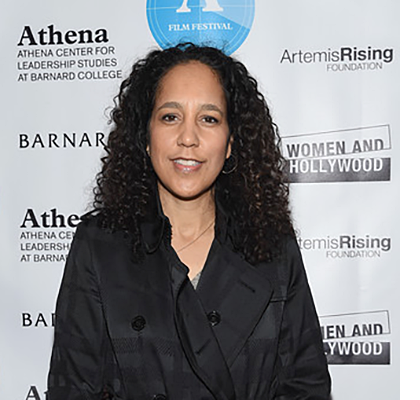 Despite current production restrictions due to COVID-19, Emmy-nominated writer-director Gina Prince-Bythewood remains motivated and sometimes reflective. Nearly two decades later, Prince-Bythewood still has vivid memories of the Television Academy Foundation Internship that she credits for helping to launch her career. "Getting into the program was such a huge deal, it still amazes me and I'm so grateful till this day." She goes on to reminisce, "I even remember I was sent a $1500 check and in the 1990s that was a lot. It was a lifeline that allowed me to pay rent and eat!"
Despite current production restrictions due to COVID-19, Emmy-nominated writer-director Gina Prince-Bythewood remains motivated and sometimes reflective. Nearly two decades later, Prince-Bythewood still has vivid memories of the Television Academy Foundation Internship that she credits for helping to launch her career. "Getting into the program was such a huge deal, it still amazes me and I'm so grateful till this day." She goes on to reminisce, "I even remember I was sent a $1500 check and in the 1990s that was a lot. It was a lifeline that allowed me to pay rent and eat!"
As a film student at UCLA, Prince-Bythewood got her start in television after being placed at Quincy Jones Entertainment (then home of The Fresh Prince of Bel-Air) through the Television Academy Foundation Internship Program. That led to a coveted writer's apprenticeship on the groundbreaking NBC sitcom A Different World. "The internship immediately got me in the industry; I have not stopped since then," she says. With credits that include TV hits Everybody Hates Chris, Girlfriends and Shots Fired and film classics such as Love and Basketball and Beyond the Lights, Prince-Bythewood has no plans to slow down. She is now at the helm of the forthcoming Netflix film, The Old Guard, the first comic book movie adaptation directed by a Black woman.
The alum recently spoke to us about the confidence the Television Academy Foundation Internship gave her, the benefits of overcoming "no" and her advice to television writers during this challenging time.
What was your internship experience like at Quincy Jones Entertainment?
The first day, one of the assistants dumped all her boring work that she did not want to do on my desk. I said to myself, "Is this what this internship is going to be like?" It wasn't exciting. I went home upset and asked myself, "What do I want out of this internship?" I wrote a plan for how I wanted to learn. The next day I asked for a meeting with the head of the film and television department. I made it clear that I wanted to learn and listed the things I wanted to do—it changed everything. They immediately saw my assertiveness and passion, so they gave me a stack of scripts and said, "Give us your opinion on these." This is exactly what I wanted to do! Reading scripts was fascinating, and it was great that they respected my opinion. They gave me a script to read for a television show they were developing. I was honest and told them it was terrible. I got with another intern and we rewrote it. We didn't know anything about a Writers Guild or rules, but we wrote it and handed it in. They loved it and said, "This is exactly what we have been trying to do with this script!" Afterwards, they got us into the guild.
How did the Television Academy Foundation intern placement lead to other opportunities?
Previously, I applied to work on my favorite show, A Different World, and I did not get it. But, because I was working at Quincy Jones Entertainment, I felt more confident in myself and decided to try again by calling the showrunner, Susan Fales-Hill, every other day to ask her for a chance. She didn't always get back to me, but when she saw that I was working at Quincy Jones Entertainment, it elevated me in her eyes. When an opportunity finally opened up at A Different World, she thought of me and gave me a job!
I worked as a writer's apprentice; I wrote scenes and pitched jokes and stories. They were excited because I had just graduated college and represented the show's demographic. I met my husband Reggie Rock Bythewood too! He was hired a week after me.
When working on that show, did you know it would have such a huge cultural impact?
It was my favorite show, so being able to start my writing career on my favorite show was amazing. I went from watching the lead characters Dwayne and Whitley to creating storylines for them. We knew we were doing something special because the stats showed a dramatic increase in the rate of students registering into HBCUs because of the show. This underscored what we were doing. We wanted to ensure we were using the opportunity to say more since there were so few Black characters on television. We dealt with heavy topics such as rape, domestic abuse and the 1992 L.A. riots.
Who were some of your early TV inspirations?
My first hero was showrunner Susan Fales-Hill, she was a Black woman in her 20s running a top show. It gave me something to look up to, and she became my mentor when she gave me my job on A Different World. Also, TV writer and producer Yvette Lee Browser was instrumental in my journey. She further exemplified work ethic. All-nighters were a norm for her, and I was right there with her.
Other names that influenced me are Leslie Harris, Julie Dash, Euzhan Palcy, Kasi Lemmons, and Kathryn Bigelow.
As a Black woman writer/director what challenges have you faced in the industry?
After Love and Basketball was successful, I received a lot of offers. It is not that I am discriminated against as a director, but my choices are discriminated against the most; my choice to focus most of my projects on Black women. That has been the hardest fight for me.
How do you identify when a story is worth telling?
It's in the gut, it's a story that stays in my head and doesn't leave. With Love and Basketball, it was a story that I had to tell. I was scared at first because I thought no one would care about this story. So, I put it aside and started writing a generic "sellable" romantic comedy instead. But, my Love and Basketball characters wouldn't leave my head. Finally, I said let me give myself a year and just write it. Beyond the Lights, same thing, the story and characters came to me and it was a three-year journey that wouldn't leave. It digs into me so much that I have to get it out. I love the feeling of writing something you're passionate about, because it's so hard to get a Black female lead movie made. It takes that level of passion to overcome "no" and continue to fight because it's easy to give up on it.
Can you remember an instance while in college where you had to overcome "no"?
I was recruited to play basketball but not by UCLA, which was everything to me because I wanted to go to UCLA because of the film school there. But, you couldn't get in until your junior year. So, I would just hang out. UCLA had a soap opera that was broadcast nationally, and me and a couple of the freshmen thought it could be better. So, on a weekend, we wrote a different script for it, went to the theater, got some actors, stole equipment and shot our own version of it. Instead of getting in trouble, we were praised because the department head loved what we did.
Then my junior year, I applied for the film school and didn't get in; it was the biggest shock of my life. I didn't know what to do, I felt my life was over. After a good cry, I decided to appeal. I went to the counselor and was told I could not appeal. Determined, I wrote an impassioned letter to the head of the film department explaining why I felt they made a mistake. Two days later she called to say, "I got your letter, you're in." Overcoming "no" early on set the tone for the rest of my career because the majority of my projects I had to fight to get them made.
You wrote and directed the FOX limited series Shots Fired, what are some of the differences of working in television vs. film?
My husband and I co-created it together. What I love about television is that the reach is insane. We can reach millions of people in one night. That's amazing! TV has evolved, with many more outlets, and more opportunities. That stigma of film actors never doing television is gone, you can move between the two mediums effortlessly. In television, you can tell a fuller story in ten hours instead of two in a film.
However, a challenge in television — especially when you're directing — is doing everything at once: writing, directing and post all at the same time. Whereas for film, you finish a script, and then you shoot and edit. It's hard to do your best work when you're simultaneously pulled in multiple directions. Thankfully, my husband and I split duties. The story was important to us and we wanted to put it out.
What advice can you give writers looking to stay motivated while quarantined during COVID-19?
There is so much negativity, uncertainty and fear right now, but embrace this time to write if you can. Because, the best thing about our craft is that it's a release; as writers, we can escape and write what we want the world to be.
What advice can you give students wanting to make the most of their internship opportunities?
What helped me was knowing and having a plan of what I wanted out of the internship. I let that plan drive my reaction to things. What do you want to get out of it? Write down the steps to get there. The whole point is to learn and get your foot in the industry. Use it to your advantage, don't just skate. It's important to remember too, as an intern, be the first there and last to leave, make yourself indispensable.
This interview has been edited and condensed for clarity and length.








